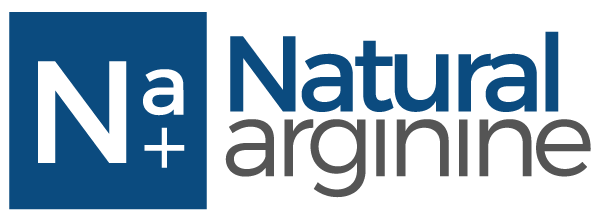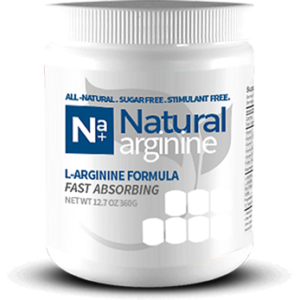Amino acid supplements can benefit everyone, not just athletes. You might be wondering how taking amino acids might help you. First off, Amino acids are the fundamental units of proteins, which make up a significant portion of every cell in the body. Proteins are the structural and support materials our cells require. Consider proteins to be everyday heroes that tackle a variety of duties. They keep us alive, healthy, and active.
Amino acids are required for all of our bodies activities.
There are hundreds of amino acids in the body, but only 20 are commonly found. Here are some of the most frequently used amino acids.
Glutamine
Glutamine is a nitrogen- and carbon-based fuel that the body uses as a source of energy. It’s also one of the most abundant free amino acids in the human body, serving as an essential energy source as a provider of nitrogen and carbon. Is there a dietary supplement you’ve been taking for years but aren’t sure if it’s doing anything? Did you just have surgery? Then glutamine is the first choice amino acid. Maybe you recently had a burn, a tissue damage, or a fractured bone? If this is the case, Glutamine is also required.
Glutamine is essential for the healing of bones, wounds, and synthesis of new structural bone protein. It also boosts our immune system, making it an ideal amino acid during periods of physical stress or trauma. In fact, Glutamine is so essential for good health that our bodies can’t produce it without the help of another amino acid called Alanine.
As you can see, Glutamine is the perfect amino acid to take after a workout. It helps speed up your recovery and reduces muscle breakdown.
Taurine
Taurine is a heart-healthy amino acid. According to studies, it may help to lower the risk of heart disease. Taurine is an essential amino acid that occurs in high amounts in the brain, retina (eye), and muscle tissue. Taurine can be found in animal products like meat, fish, and dairy products.
Taurine has the potential to have significant affects the cardiovascular system. Taking taurine on a daily basis may help lower cholesterol and triglycerides in people with diabetes, according to a 2008 study. It is linked to an increased chance of heart disease at high doses. Individuals who ingested 2 grams of taurine three times a day were studied. After four months, cholesterol and triglycerides levels were lower in those that took additional taurine than in those who did not.
Arginine
Arginine relaxes the arteries, aids in the removal of waste products from the body by the kidneys, and supports immune function. It also promotes blood vessel dilation, which means it helps to expand the blood vessels in our body. Arginine’s ability to increase nitric oxide is one of the reasons it’s utilized as a supplement for heart diseases and high blood pressure. Nitric oxide is a molecule that helps with circulation.
L-Arginine has also been observed to promote wound healing in animal models. After major surgery, individuals who took arginine supplements had a faster recovery and fewer infections. In fact arginine is sometimes referred to as a “natural healing amino acid”.
Serine
Sleep is a fundamental life function that has major ramifications for one’s health, and serine may be just the amino acid to assist. Sleep deprivation or sleep disorder can raise the risk of stroke, diabetes, and even depression. Furthermore, sleep deprivation’s secondary consequences, such as elevated blood pressure and obesity, are all possible. However, scientists in Japan discovered that intake of serine (before going to sleep) might improve subjective sleep quality for individuals who are dissatisfied with their sleep.
GABA is a neurotransmitter that has a calming influence on the brain and tries to help you fall asleep. Serine donates a phosphate group to GABA, resulting in a process called phosphorylation. Phosphorylating GABA increases its efficiency as an inhibitory neurotransmitter, which means serine makes it more efficient at helping with sleep onset.
As a non-essential amino acid, you’ll find serine in things like:
- soybeans
- nuts
- eggs
- chickpeas
- meat
- fish
Lysine
Lysine is an essential amino acid, which means that although it is required for human health, our bodies are unable to create it. As a result, we must eat foods high in lysine, such as meat, fish, nuts, or supplements. Lysine seems to aid in the absorption of calcium, and it is important for the formation of collagen, a protein that is essential for bones, tendons, and cartilage.
Lysine has also been linked to improved athletic performance, and many athletes use lysine as a protein supplement to help muscle tissue recover from stress.
Glutamine, taurine, arginine, serine, and lysine are all members of a potent amino acid family. They work together to maintain our heart, immune system, skin, bones, exercise performance, and sleep. Take a look at your diet to see if it includes sufficient amounts of these amino acids. It’s well worth the effort. If you can’t eat a varied diet, consider taking amino acid supplements for the full effect.
Do you want to know what amino acids can do for you and your health? As shown above, amino acids may improve the health of most individuals. With that, it is always important to consult with a physician before adding these, or any new supplements to your daily diet.


